
Previously the staff writer for physical sciences at Science News, Maria Temming is the assistant managing editor at Science News Explores. She has undergraduate degrees in physics and English from Elon University and a master's degree in science writing from MIT. She has written for Scientific American, Sky & Telescope and NOVA Next. She’s also a former Science News intern.

Trustworthy journalism comes at a price.
Scientists and journalists share a core belief in questioning, observing and verifying to reach the truth. Science News reports on crucial research and discovery across science disciplines. We need your financial support to make it happen – every contribution makes a difference.
All Stories by Maria Temming
-
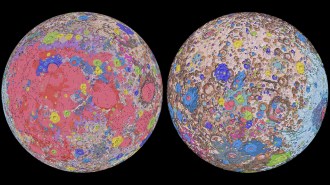 Planetary Science
Planetary ScienceThis is the most comprehensive map of the moon’s geology yet
Cartographers merged Apollo-era maps and modern lunar observations to into a new geologic map of the moon.
-
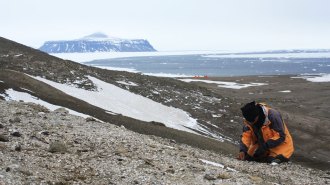 Paleontology
PaleontologyThe first frog fossil from Antarctica has been found
An ancient amphibian from Antarctica gives new insight into when the continent got so cold.
-
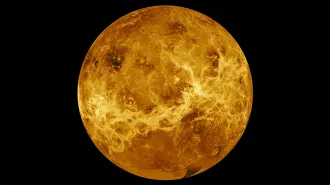 Planetary Science
Planetary ScienceUnlike Earth, the gases in Venus’ atmosphere aren’t uniformly mixed
Measurements of Venus’ atmospheric nitrogen show that a planet’s upper atmosphere doesn’t necessarily match the lower atmosphere.
-
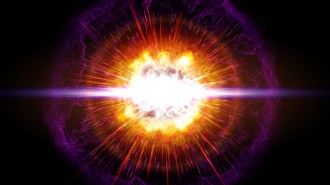 Space
SpaceA weird stellar explosion may have caused the brightest supernova yet seen
Astronomers may have spotted the first known example of a rare “pulsational pair-instability” supernova.
-
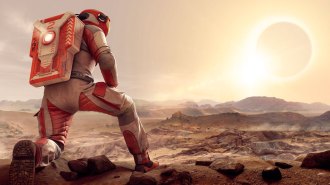 Space
Space‘Spacefarers’ predicts how space colonization will happen
In Spacefarers, Christopher Wanjek provides an optimistic yet realistic view on how humans might colonize the rest of our solar system.
-
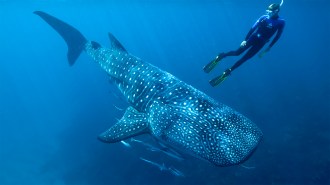 Animals
AnimalsCold War nuclear test residue offers a clue to whale sharks’ ages
One unexpected legacy of the Cold War: Chemical traces of atomic bomb tests are helping scientists figure out whale shark ages.
-
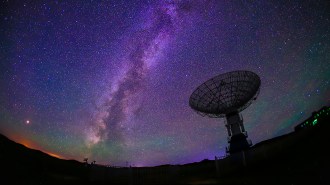 Space
SpaceNew search methods are ramping up the hunt for alien intelligence
Six decades of radio silence hasn’t stopped scientists searching for intelligent life beyond Earth. In fact, new technologies are boosting efforts.
-
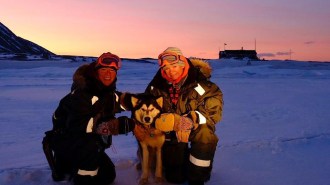 Climate
ClimateThese women endured a winter in the high Arctic for citizen science
Two women have spent the winter on the Norwegian archipelago of Svalbard to collect data for climate scientists around the world.
-
 Health & Medicine
Health & MedicineYou can help fight the coronavirus. All you need is a computer
With Folding@home, people can donate computing time on their home computers to the search for a chemical Achilles’ heel in the coronavirus.
-
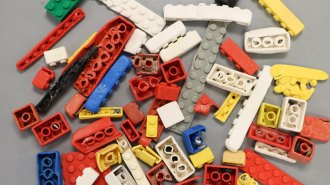 Environment
EnvironmentLegos may take hundreds of years to break down in the ocean
Sturdy types of plastic may persist in seawater for much long than scientists previously thought.
-
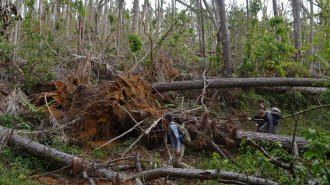 Climate
ClimateHow Hurricane Maria’s heavy rains devastated Puerto Rico’s forests
Hurricane Maria wreaked havoc on Puerto Rican forests in some unexpected ways.
-
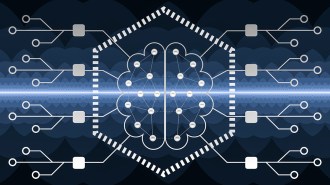 Artificial Intelligence
Artificial IntelligenceAn AI that mimics how mammals smell recognizes scents better than other AI
An artificial intelligence modeled after the neural circuitry in mammalian brains can keep learning new aromas without forgetting others.